*NURSING > PATIENT ASSESSMENTS > NR 511 week 6 part 1 - Week 6 Part One (All)
NR 511 week 6 part 1 - Week 6 Part One
Document Content and Description Below
NR 511 week 6 part 1 - Week 6 Part One Week 6 Part One Initial: Michael Age: 10 Sex: male Race: Caucasian Subjective: CC: fatigue Onset- A few weeks, maybe more. How long has Michael been tir ... ed? Michael when did you notice you were tired? Location- Generalized. Is your whole body tired? Do you notice any particular part being weaker than the other? Duration- Constant. Are you constantly tired? Are you more tired in the mornings, evenings, or nights? Characteristics- No energy. Never hungry anymore. Lost some weight. Always thirsty. Wet the bed last week. Sleeping more. What do your regular meals consist of? How much weight have you lost? How much water do you drink a day? Have you ever wet the bed before? How many hours of sleep do you get a night? Are you in any pain? Have you had any blurry vision? Aggravating Factors: none stated Reliving Factors- None reported. Does anything you do take the tiredness away? Does anything make it better/ make you feel like you have more energy? Treatment- None reported. Have you taken anything to help your tiredness? To include medications, OTC medications, or energy supplements? Severity- No pain reported. Are you having any pain? If so, on a 1-10 pain scale, what would you rate the pain? How bad is your fatigue? Current medication: daily multivitamin Immunizations: UTD Allergies: Penicillin, gets a rash What is your differential diagnosis list with ICD 10 for this visit thus far? Each differential diagnosis should include a one sentence pathophysiology statement supported by the literature. List the patient’s signs and symptoms and include a rationale statement that explains how the diagnosis is appropriate for your patient. o 1. Diabetes mellitus type 1 (E08) (icd10data.com, 2016) - Diabetes mellitus (DM) refers to a syndrome of hyperglycemia resulting from many different causes (Ferri, 2016). S&S: Increased thirst, frequent urination, extreme hunger, fatigue, irritability or unusual behavior, and blurred vision (Ferri, 2016). o 2. Hypothyroidism (E03.9) (icd10data.com, 2016) - Hypothyroidism is a disorder caused by the inadequate secretion of thyroid hormone (Ferri, 2016). S&S: Fatigue, lethargy, weakness, constipation, weight gain, cold intolerance, muscle weakness, slow speech, slow cerebration with poor memory (Ferri, 2016). o 3. Infectious mononucleosis (B27.9) (icd10data.com, 2016) - Mononucleosis is a symptomatic infection most commonly caused by Epstein-Barr virus (EBV) (Ferri, 2016). S&S: Fever, chills, malaise, anorexia, tonsillar pharyngitis, and lymphadenopathy (Ferri, 2016). Based on your differential diagnoses list, what focused PE would you perform? What labs or diagnostic tests, if any, would you order? o Diagnosis of type 2 diabetes can be made using fasting plasma glucose, A1C testing, random plasma glucose testing, or an oral glucose tolerance test (Pippitt & Gurgle, 2016). I would consider these tests. o A combination of polyuria, polydipsia, and weight loss in a child is unique to diabetes (Pippitt & Gurgle, 2016). I would consider this. o The best laboratory assessment of thyroid function, and the preferred test for diagnosing primary hypothyroidism, is a serum TSH test.12 If the serum TSH level is elevated, testing should be repeated with a serum free thyroxine (T4) measurement (Gaitonde, Rowley, & Sweeney, 2012). I would order a TSH and T4 if indicated. o Mononucleosis should be suspected in patients presenting with sore throat, fever, tonsillar enlargement, fatigue, lymphadenopathy, pharyngeal inflammation, and [Show More]
Last updated: 3 years ago
Preview 1 out of 8 pages
.png)
Buy this document to get the full access instantly
Instant Download Access after purchase
Buy NowInstant download
We Accept:

Reviews( 0 )
$7.00
Can't find what you want? Try our AI powered Search
Document information
Connected school, study & course
About the document
Uploaded On
Aug 28, 2021
Number of pages
8
Written in
All
Additional information
This document has been written for:
Uploaded
Aug 28, 2021
Downloads
0
Views
164

.png)
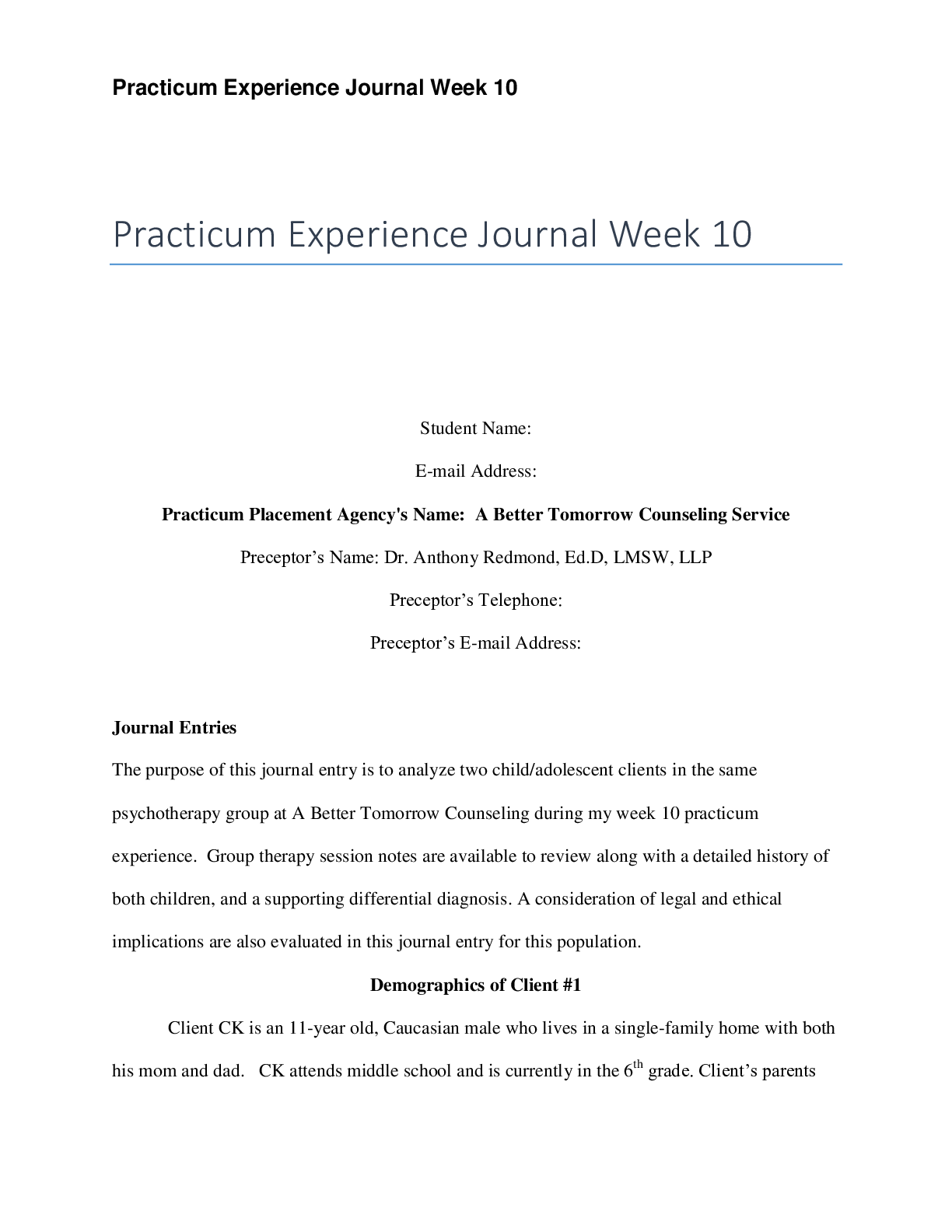
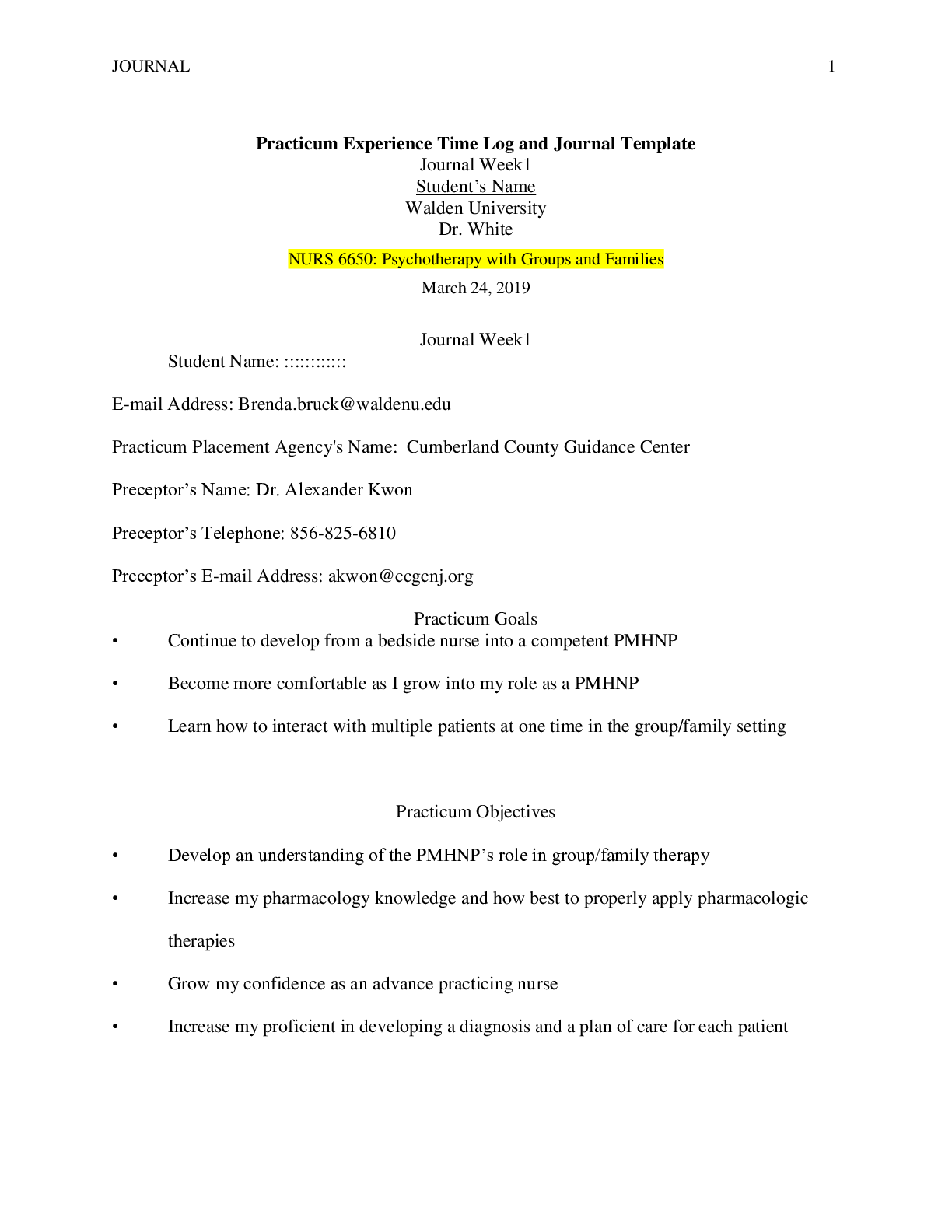
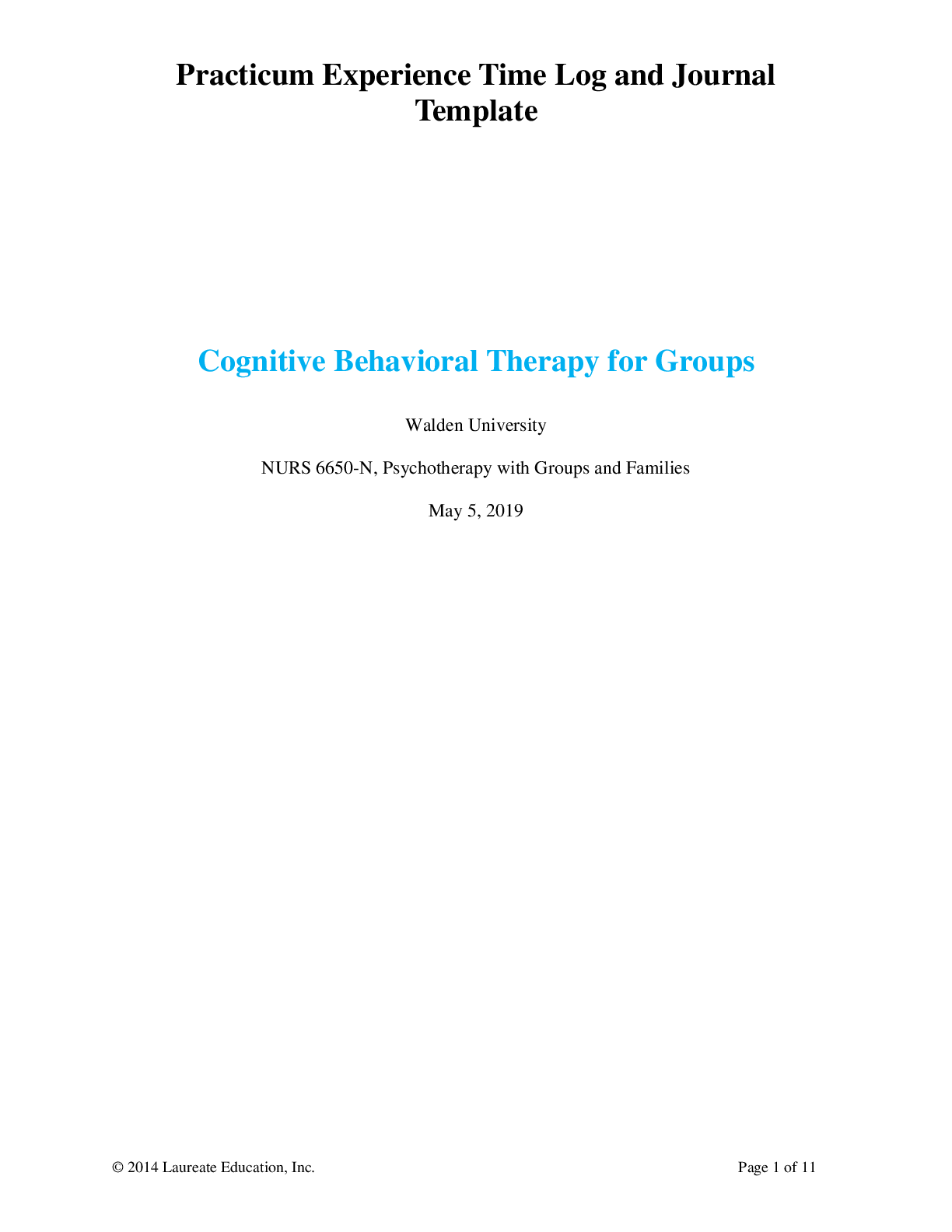
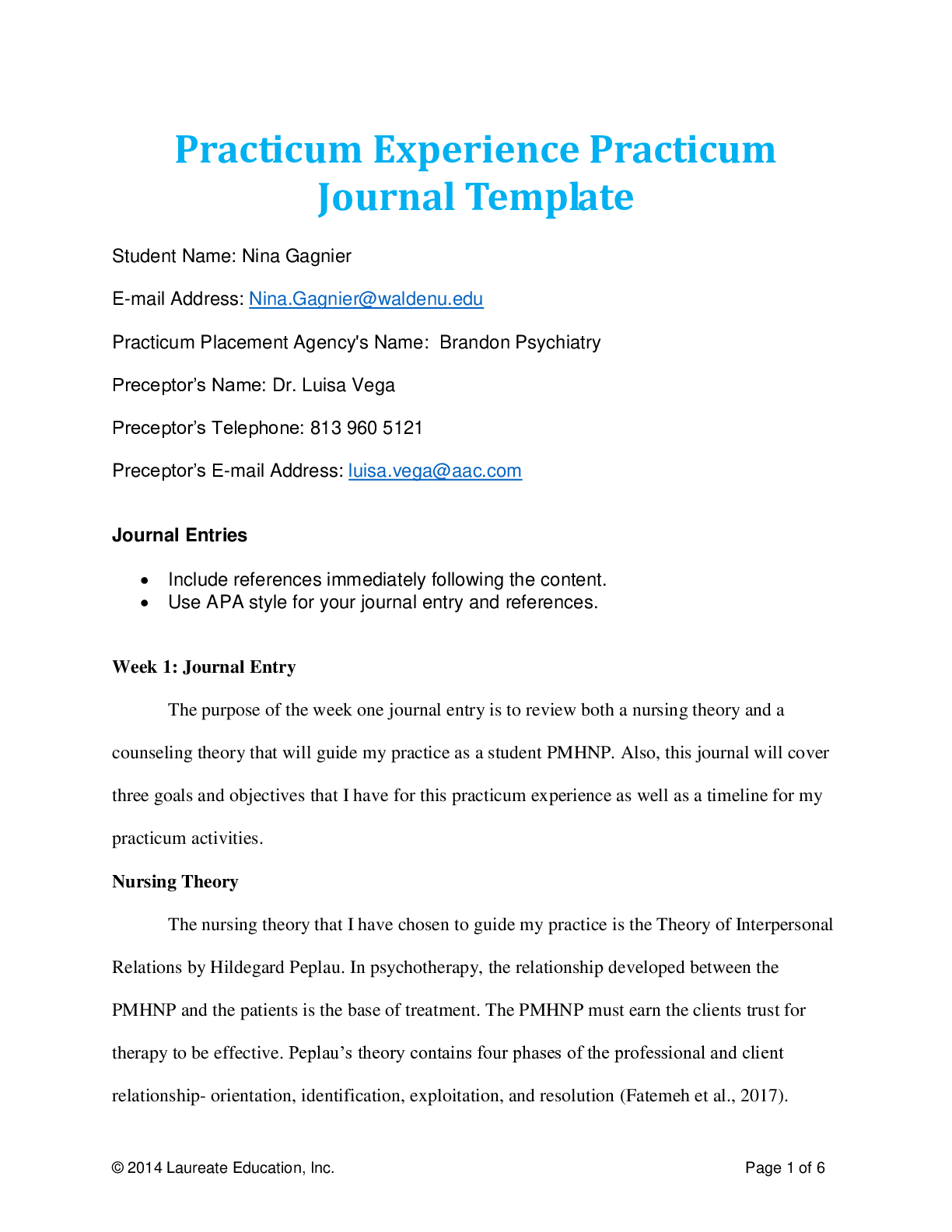

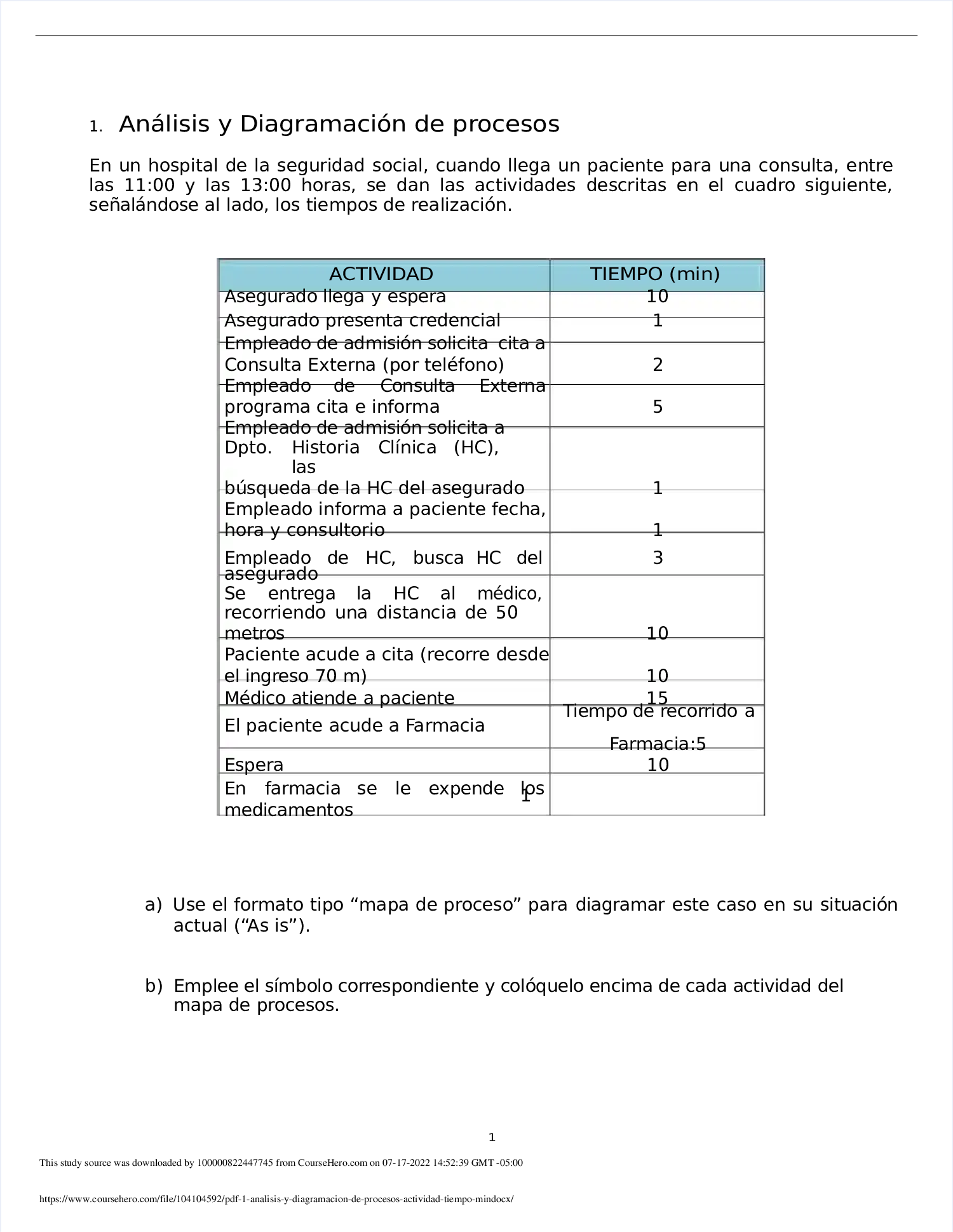




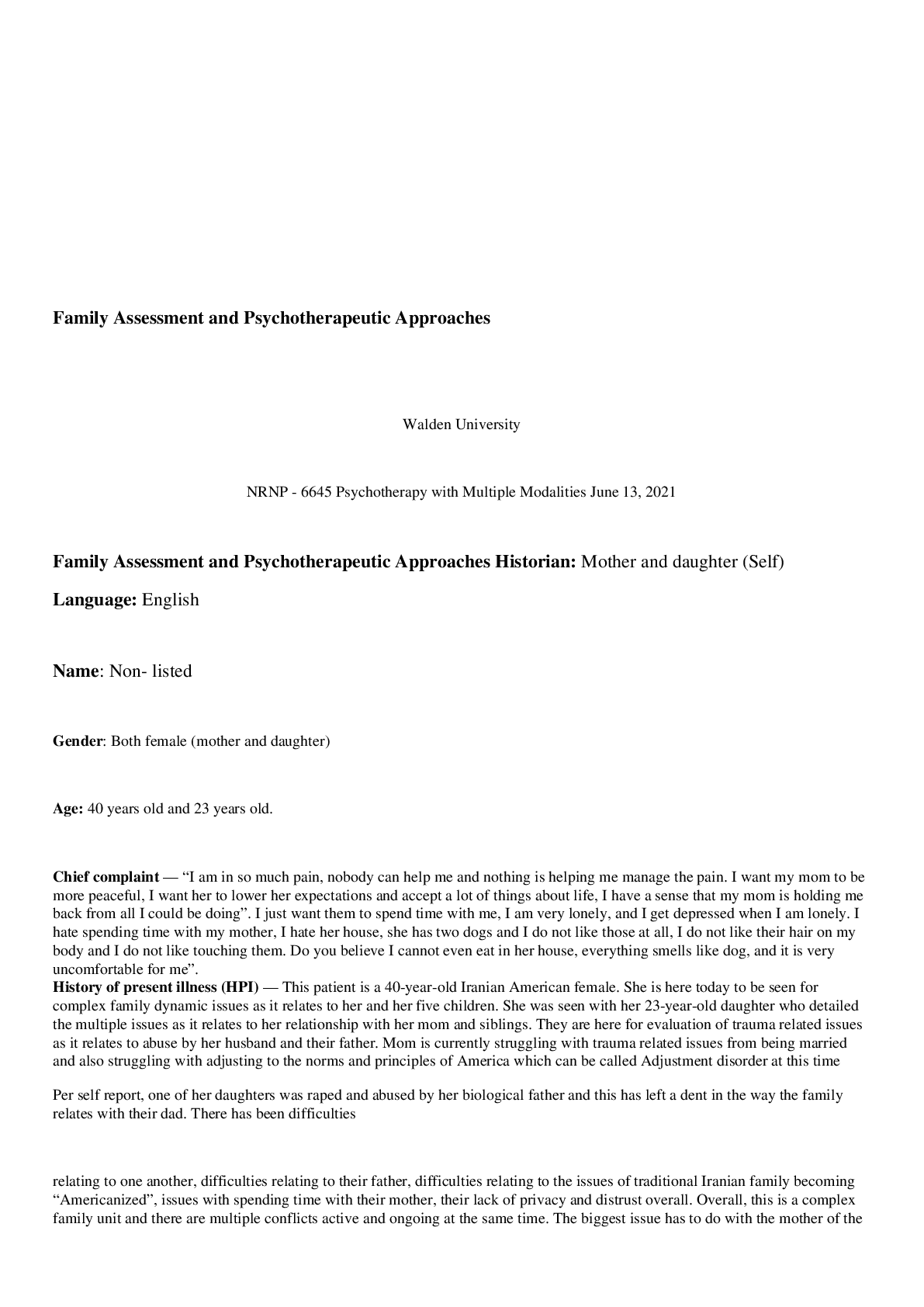
.png)

